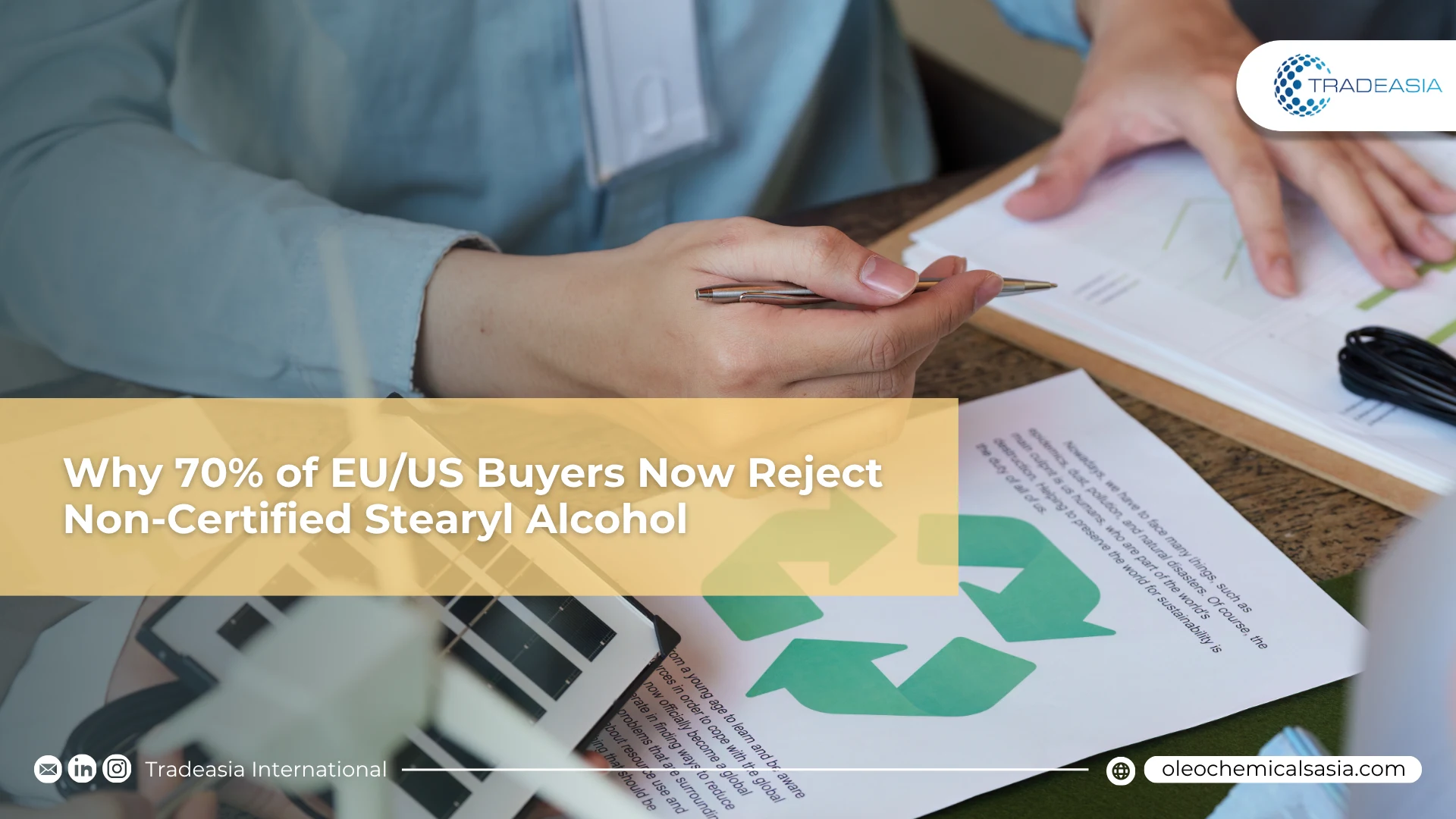Why 70% of EU/US Buyers Now Reject Non-Certified Stearyl Alcohol

Table of Content
-
The Non-Negotiable Mandate: Driven by Law and Consumer
-
Why the 'Green Premium' Is Simply the Cost of Business
Sustainability is no longer a 'nice-to-have' feature or a marketing tagline; it has become the non-negotiable price of market access. For Stearyl Alcohol suppliers, this is now a core commercial reality. Over 70% of Fortune 500 consumer packaged goods (CPG) companies—the world's largest buyers—now have public commitments to source 100% sustainable materials by 2030. This top-down mandate means their procurement teams are now bound to reject any raw material, including Stearyl Alcohol, that does not come with verifiable proof of sustainability.
This shift from preference to policy creates immense supply chain pressure. At Tradeasia International, we recognized this shift early. We don't just trade oleochemicals; we deliver certified and compliant oleochemicals. We have spent years building robust, traceable palm-based supply chains to ensure our partners can confidently meet the exacting standards of the world's most valuable markets.
The Non-Negotiable Mandate: Driven by Law and Consumer
This mandate is powered by two engines. First, over 80% of Gen Z consumers in the EU and US report they will switch brands based on sustainability, driving retailers to demand certified products. Second, regulations like the EU Deforestation Regulation (EUDR) now legally require full traceability, effectively banning any palm-based product linked to deforestation. This has directly driven up demand for certified sustainable palm oil (CSPO), which now accounts for 19% (or 14.7 million tons) of the global supply, with demand from the premium oleochemical sector far exceeding that average.
Why the 'Green Premium' Is Simply the Cost of Business
This demand has created a clear two-tier market. As our trading desk often notes, "In this market, a certificate isn't an add-on; it's part of the core product." RSPO-certified Stearyl Alcohol, particularly the Segregated (SG) grade, regularly trades at a $50 to $150 per ton premium over non-certified material. This is not an optional "green fee"; it is the price of admission. For B2B suppliers, holding non-certified inventory is no longer a cost-saving measure but a high-risk liability, locking them out of over 70% of the high-value Western market.
Sources:
-
RSPO Premiums and Market Demand, oleochemicalsasia.com
-
RSPO Impact Report 2023, rspo.org
-
NielsenIQ Consumer Sustainability Report, 2024

Leave a Comment